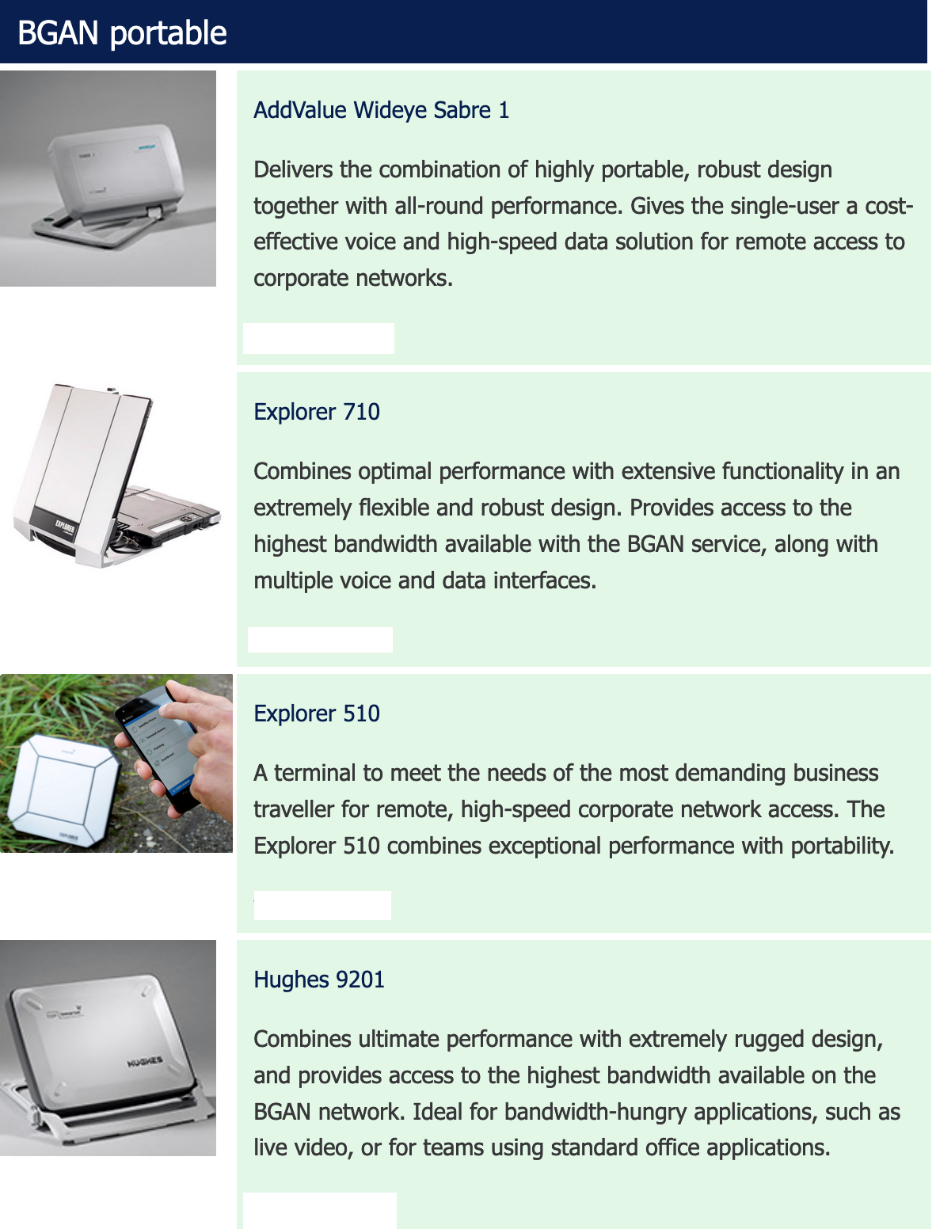
Inmarsat will provide further enhanced support to the vital aid and NGO sector during the Covid-19 pandemic.
These new initiatives will enable enhanced offerings across both platforms and come as a direct response to the additional challenges caused by the Covid-19 pandemic, ensuring emergency responders can continue delivering critical aid and relief. Inmarsat’s Broadband Global Area Network (BGAN) and Isatphone 2 services are crucial connectivity tools for land-based organisations, especially for aid agencies and NGOs.
The new initiatives include enabling Inmarsat’s BGAN Link plan for usage globally. This means that the normally static, geo-specific service can offer organizations the capability to operate cost-effectively and without complexity within a wider geographic range as they carry out their vital operations.
Inmarsat will also offer its BGAN Pro Plan, with a new discount of 50% on the cost of any data used over the 30MB monthly allowance, delivering significant cost savings for the typical user.
To support Isatphone 2 pre-paid users, Inmarsat will introduce a ‘GSPS 00075 Emergency’ voucher including 50% more airtime allowance and a validity of 90 days at the same cost as the ‘GSPS 00050’ voucher that has a 30 day validity period. Additionally for the Isatphone 2 GSPS Standard plan, a 50% discount on calls over the monthly limit will be applied.
Covid-19 is affecting the operation of aid and NGO organisations, and the need for reliable connectivity, in a variety of ways. Many are at the forefront of the medical response, supporting health services through telemedicine in remote or developing areas. Elsewhere, the impact of the disease has caused many other issues to the wider economy and people’s day-to-day lives, which are also being addressed through the work of NGOs, such as distributing food and other resources. Covid-19 is also adding increasing complexity to the daily operations for aid and NGO organisations as they respond to unrelated-crises, such as natural disasters or humanitarian events, causing remote connectivity to be more critical than ever.

Mike Carter
Mike Carter, President of Enterprise, commented that Inmarsat has a long-standing heritage in providing critical safety services, having been founded by the United Nations more than 40 years ago to support the maritime industry with emergency communication services. The company continues to fulfill that mission today, providing critical connectivity services when disaster strikes as a signatory of the United Nations Crisis Connectivity Charter. Through this agreement, the company is already working with our partners to provide crucial satellite communications for the relief efforts taking place in Vanuatu, Fiji and Tonga following the devastating impact of Cyclone Harold, which are being made more challenging by Covid-19. These new initiatives will ensure aid and NGO organizations have access to the connectivity they need to do their job, wherever they are. Inmarsat will continue to work closely with customers and partners during and beyond this period.

Monique Lanne-Petit
Monique Lanne-Petit, Director of Télécoms Sans Frontières remarked that aid and NGO organizations are playing a critical role in the response to Covid-19, as well as other unrelated crises. The ability to respond effectively to any relief scenario is entirely contingent on strong communications, with reliable connectivity paramount, so that every action is informed and makes the maximum impact. With the coronavirus pandemic adding to the challenges, accessing reliable communications is even more critical.
She continued that during more than 20 years of humanitarian operations, the organization has been using Inmarsat’s technology to provide relief and to give a voice to the victims of natural and human-made disasters. In response to COVID-19, this technology is being used in Syria to connect mobile medical teams in the Idlib region and in Mozambique to support the Government in the coordination of their response and to connect isolated areas where the population is more vulnerable to the impact of the pandemic. By making Inmarsat’s satellite communications services more accessible, it will allow the organization and the humanitarian community to continue safely coordinating emergency relief operations, saving lives and helping to rebuild communities.
These initiatives focus on new and existing out of contract users for the duration of the Covid-19 pandemic. To learn more, please access this infolink...


